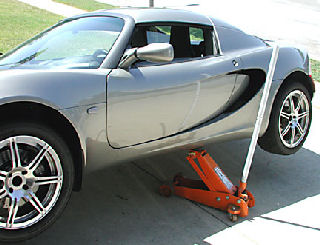Mechanical Car Lifts
By Shenron on Nov 07, 2007 with Comments 3
Mechanical car lifts are generally referred to as car lifts that require no hydraulic or electrical energy to lift or lower a vehicle. While hydraulic and electrical car lifts are not classified as mechanical car lifts, in many instances pneumatic lifts can be considered classified as mechanical in nature. Purists refer to mechanical car lifts that require human power to lift and lower a vehicle- usually with the help of special wrenches, locks, jacks, etc to raise or lower a vehicle.
Most mechanical car lifts are specifically built for infrequent use. For instance, mechanical scissor lifts are generally made for amateur mechanics that may work on their car a couple of times per month and do not require a separate electrical or hydraulic system to raise their vehicle quickly. While an electrical/hydraulic car lift can lift or lower a vehicle fully in less than a minute, mechanical car lifts can take several minutes to raise or lower a vehicle in place.
Mechanical car lifts are usually much more affordable than other types of car lifts and while they are safe and reliable, they may not be as easy to use as electrical and hydraulic car lifts. You can purchase a mechanical car lift for a low weight capacity vehicle (6,000 to 10,000) usually starting less than $800. In fact, many basic mechanical car lifts can cost as low as $300. It should be noted that since mechanical car lifts do not require any electricity or hydraulics to work, they are much more portable and require less maintenance over their lifetime.
Filed Under: General

[…] Read the rest of this great post here […]
[…] See the Rest here […]
[…] Mechanical Car Lifts […]